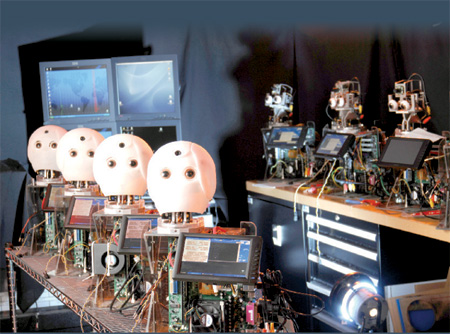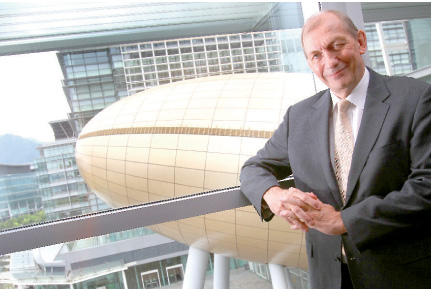A mind for innovation
Updated: 2010-11-30 07:08
By Guo Jiaxue(HK Edition)
|
|||||||
|
An early version of the weight loss robot coach, Autom. Provided to China Daily |
|
Nicholas Brooke, Chairman of the Hong Kong Science and Technology Park, at the site. Over the past 10 years, Hong Kong has tried hard to foster its innovative technology. Edmond Tang / China Daily |
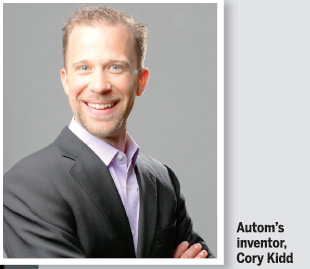
Hong Kong presses doggedly forward in its efforts to establish itself as a major global center for InnoTech. The government is employing bold strategies aimed at improving the city's 27th place ranking in competitiveness among Chinese cities. Guo Jiaxue reports.
After finishing his PHD at MIT in 2007, Cory Kidd came to Hong Kong with a robot he built.
Autom, the little robot sits on the table wearing a big grin, its two big eyes twinkling. She was Kidd's dream, the fulcrum for starting his own business to help people affect behavioral change connected to long-term, health-related conditions. Autom can set goals to help people lose weight, maintain a record of progress, offer encouragement, and provide customized feedback. "She will speak out loud, look around to see your face, and look at you while she's talking to you. Using the touch screen, you can respond to her," said the inventor.
"It targets the very large US weight-loss market," he added. "There are 85 million people on diets spending $16 billion on weight-loss products and services. It's a very big market and the one where we'd like to launch our product first."
Full of ambition, Kidd left his home country, flew across the Pacific to Hong Kong, 13 time zones away from his target market, started his company here, and settled down.
"There are a number of reasons for being here, one of them is the manufacturing across the border," he explained. "The cost will be significantly less than it would be in the US, or other places we considered."
"Some of the government incentives as well" helped him to finalize the decision, he continued.
Kidd and his two co-founders rent an office in the Science Park, under the park's incubation program. The start-up has been granted 18 months of rent-free commercial space, with the promise of reduced rent after the 18 months has expired. The venture also received an interest-free loan from the Hong Kong government. "The government certainly offered better support, in terms of starting up a company, more than I have seen in many other places. That's very helpful in getting us to this point," he said.
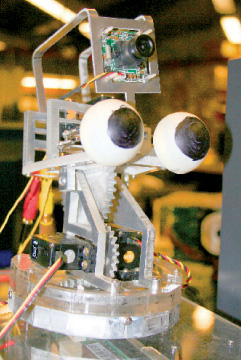
It was challenging to turn a concept into a successful commercial product. The previous version of the robot was much bigger and put together by hand. It took a lot of time and work for a whole team of people from his company and other companies in Hong Kong and on the mainland to improve the invention to its current standard.
"For this one, we focused on making it visually appealing. The software is much better, something we can actually go into manufacturing with, and shape it as a product."
Autom has been a finalist at the Asian Innovation Awards, and will hit the US market next year. Kidd has received hundreds of orders already. He is now working with three to five large health insurance companies, and two large pharmaceutical companies in the US. In future Autom's conversational ability will be broadened to cover diabetes and then later, other diseases. The Asian market will also be Kidd's next target.
He has built up his design and development team in Hong Kong. "We have no plan to move," he added.
Over the past 10 years Hong Kong has tried hard to foster its innovative technology, one of the Six New Industries the government believes to be crucial for capitalizing Hong Kong's knowledge-based economy. In the face of many doubts, the city is sticking to the plan set out by Chief Executive Donald Tsang a year ago, and gradually making progress.
Nicholas Brooke, Chairman of the Hong Kong Science and Technology Park, says Hong Kong already has major advantages in several areas, such as LED lighting and renewable energy. The technology of the RFID smart card, in Brooke's view, is "where Hong Kong can establish a cutting edge".
Already, 310 technology companies have quietly settled in the park, 57 percent are local enterprises, the remainder have come from all over the world. There will soon be 500 companies with 15,000 employees operating in the park, when phase III is completed.
An InnoTech Month was launched in November, aiming to foster public interest in innovation and technology, particularly among the younger generation.
Yet in this year's Blue Paper on the Competitiveness of Chinese Cities, the Chinese Academy of Social Sciences (CASS) indicated that in the field Hong Kong is ranked only 27th, still far behind other major cities on the mainland.
"Scientific research in Hong Kong is very good; commerce in Hong Kong is very good. But the situation is, the two are separated," Ni Pengfei, an economic professor of the CASS, pointed out.
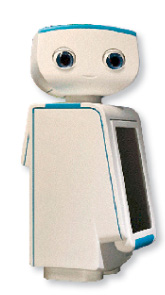
Alex Wai, Vice President (Research Development) of Polytechnic University offers an academic perspective.
Wai observes there is no tradition of entrepreneurship among Hong Kong's professors and research students, despite the high level of scientific research at the universities in Hong Kong. At many other top universities in the world, many professors or PHDs start their own companies when they leave the campuses.
"It's deep-rooted traditional culture that people are afraid to fail. Yet innovation is the kind of thing at which you may fail many times before succeed," he said.
Kidd, the inventor of Autom, has benefited greatly from the entrepreneurial tradition of his university. "MIT has a long history of entrepreneurship. Many who already set up companies in the past are willing to talk to you. I got advice on all different aspects of getting the company started," he said, "where to set up a company, how to develop technology, where to manufacture, how to put all the pieces together in a right way, so that you can be successful."
The MIT graduate has 650 alumni close by, here in Hong Kong. "Quite a few people have already started out here while I was still living in the US," he said.
There is another "weakness" to Hong Kong.
"In a way the investors in Hong Kong have been spoiled. It was always too easy, particularly with real estate and the stock market," Brooke said. That results in investors becoming reluctant to look into other opportunities. Technology companies find it very difficult to raise funds.
The park has been doing the matchmaking. Every two months it holds a matching session between technology companies and investors. An even more large-scale three-day conference InnoAsia was held in Hong Kong this month.
"Without a facilitator, the good ideas won't go forward, they just remain good ideas," he said.
Nevertheless, Brooke still has faith in the industry in Hong Kong. He believes that being next to the mainland is a huge advantage, just as Kidd observed. "Yes, we have competition, yet none of it has the location advantage that we have," Brooke said.
(HK Edition 11/30/2010 page4)
